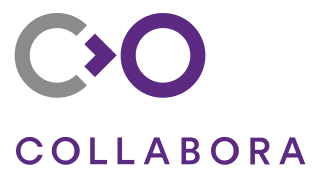| Old version, still maintained: 10.0 | April 27, 2017 | File integrity checks, guest accounts, custom groups, multiple link sharing, new app marketplace |
| Old version, still maintained: 10.1 | February 7, 2019 | Microsoft Office Online Integration, File Locking, Semantic Versioning, OpenCloudMesh 1.0 compliance |
| Old version, still maintained: 10.2 | May 16, 2019 | Advanced Sharing Permissions, SecureView, Improved Public Links, Storage Encryption with HSMs |
| Old version, still maintained: 10.3 | October 15, 2019 | New Media Viewer, improved OAuth2 session handling, improved User/group sharing UI |
| Old version, still maintained: 10.4 | March 5, 2020 | Expiration dates for user and group shares, supports MariaDB up to 10.4, PostgreSQL up to 10, share indicator on webUI |
| Old version, still maintained: 10.5 | August 3, 2020 | Official support for PHP 7.4, manual file locking in the web interface, improved background process for metadata of federated shares |
| Old version, still maintained: 10.6 | December 16, 2020 | |
| Old version, still maintained: 10.7 | March 26, 2021 | Preparations for upcoming workstream integrations, UI improvements, improved encryption efficiency |
| Old version, still maintained: 10.8 | July 21, 2021 | New ownCloud Web browser frontend, new login UI, better caching for external storages like Windows Network Drives |
| Old version, still maintained: 10.9 | December 23, 2021 | Initial sync faster, more detailed file locking, version control and public sharing |
| Old version, still maintained: 10.9.1 | January 13, 2022 | Prevent encrypted files from being corrupted when overwriting them, Marketplace not working after upgrade from 10.8 to 10.9, Fixes for the newly introduced feature to store the author of versions |
| Old version, still maintained: 10.10.0 | May 14, 2022 | Many bugfixes, improved management of migrations, session handling and storage. |
| Old version, still maintained: 10.11.0 | September 20, 2022 | Many bugfixes, edit permission for public links on single files, sharing with multiple users at once, inviting new guests to Custom Groups. |
| Old version, still maintained: 10.12.0 | March 12, 2023 | Dropped support for PHP 7.3, changed workflow for persistent major versions (added checkbox to select versions to keep), added support for login policies, extended trashbin, mounts, shares and checksum functions. |
| Old version, still maintained: 10.12.1 | April 18, 2023 | Fix Permission Bits when Enforcing Passwords on Public Links, Prevent 507 Insufficient Storage on 32-Bit Systems, Fix quota for 32-Bit Systems, Add RewriteBase to .htaccess, Updated text editor and metrics apps. |
| Old version, still maintained: 10.13.0 | August 24, 2023 | Kerberos authentication; enforceable 2-Factor-Authentication via Time-based One-Time Passwords (TOTP); iOS (version 12.0.3+) or Desktop client (version 4.0+) now allow to directly open a file in the Office Suite on the ownCloud server; update Symfony 4.4 -> 4-5; |
| Old version, still maintained: 10.13.1 | September 06, 2023 | Improvements to "Open in Web"; Avoid Loading 3rd-party Resources; Fix: disallow pre-signed url access if the signing key is not initialized; dismiss invalid settings of the redirection endpoint URI as seen in the OAuth2 protocol, according to RFC#7636; updated apps for Graph API, Guests, OAuth2; |
| Old version, still maintained: 10.13.2 | October 10, 2023 | Several bugfixes (e.g. Delete all files from object store when user is deleted), fixed view on users page for subadmins, updated PHP dependencies (phpseclib, symfony, ...), remove "Fill E-Tags" repair-step (a legacy step that took very long to run during an upgrade of a large system and didn't repair anything anymore), upgraded Microsoft Office Online app to version 1.8.1., Media Viewer now plays also HEIC and HEIF-files. |
| Old version, still maintained: 10.13.3 | November 17, 2023 | Fix potential issue with the PreviewCleanup job in postgresql. Reverting Pull request 41059 because of performance problems for large installations. Users can only delete their own external storage configurations, and comments in config.apps.sample.php describing the configuration variables related to kerberos and windows_network_drive are now updated and in sync with published online documentation. |
| Latest preview version of a future release: 10.13.4 | December 13, 2023 | A Bugfix to Check 2FA on controllers which are accessible publicly and authenticated, a new feature to prompt the admins of licensed instances to run the IoC-Scanner. The prompt appears in the admin menu and after an upgrade on the CLI. |
| Latest version:10.14.0 | February 26, 2024 | Fix issues where log conditions could break uploads, share expiration was wrong in the web UI, and previews were generated from last page instead of first. Release enables Files->Office menu to work with rich documents 4.1.0 and makes several enhancements to lDAP user and group handling related to external storages and deleting attributes. Performance also improved with version metadata handling. Finally, Google Chrome no longer auto-translates filenames. |








